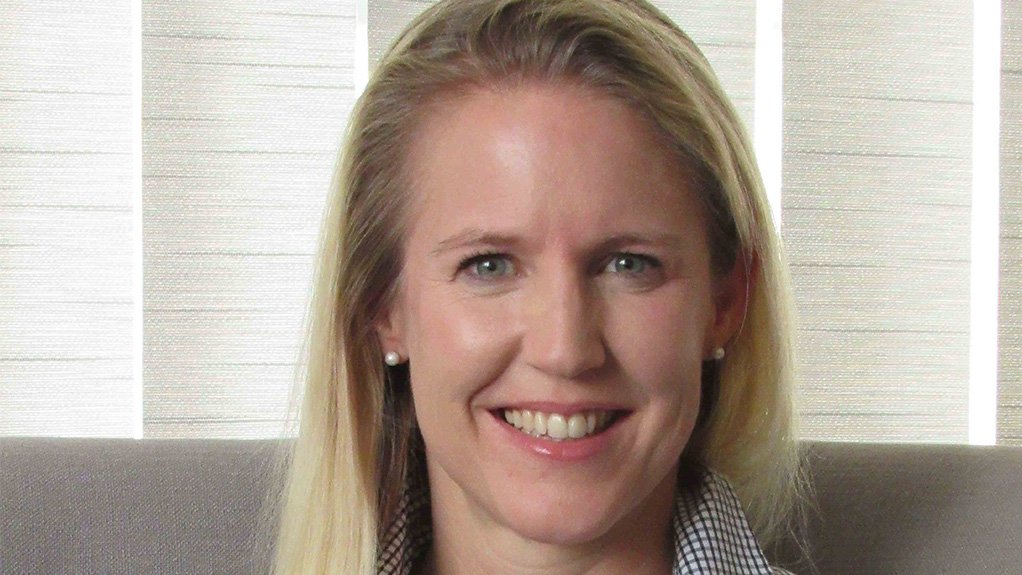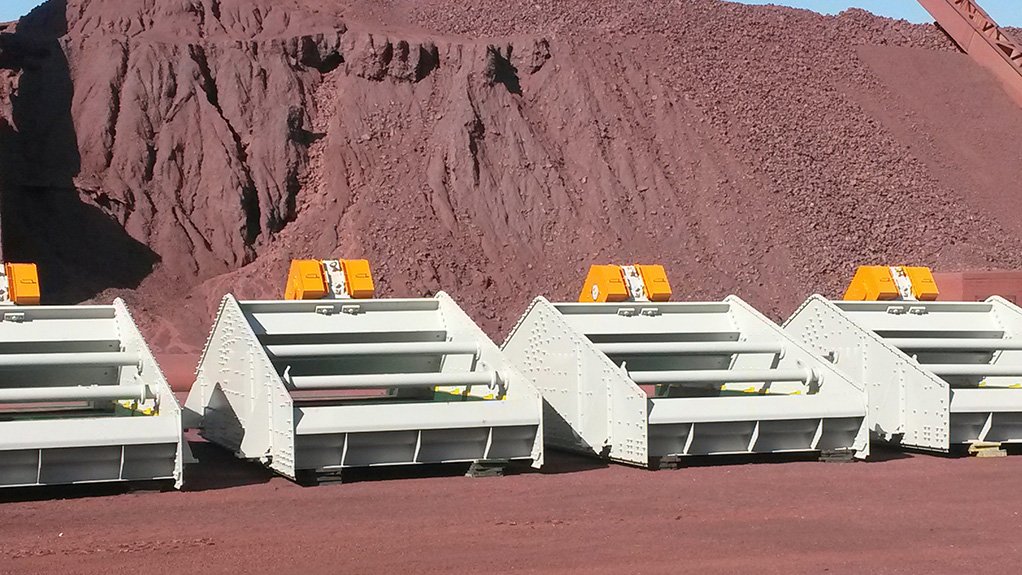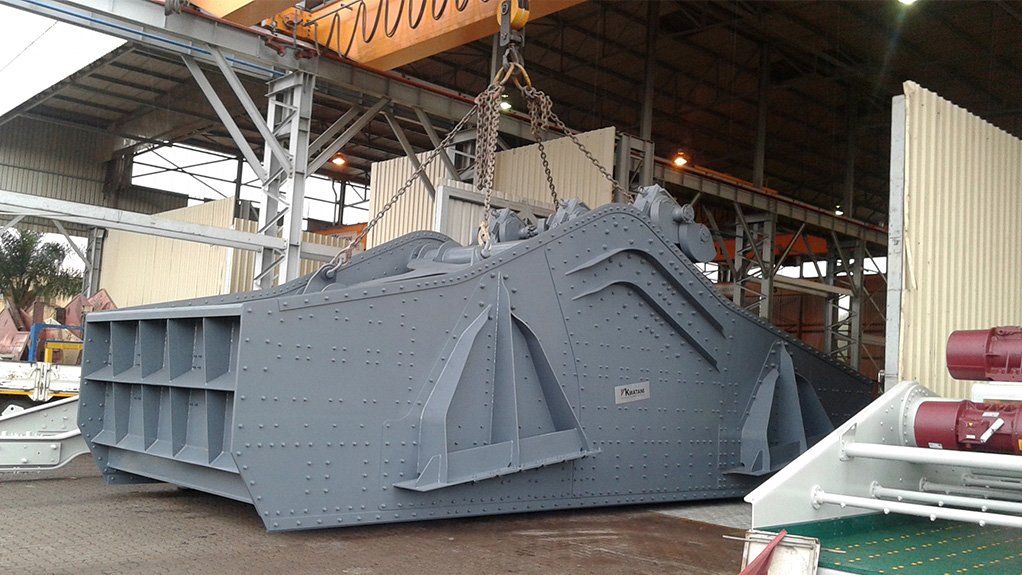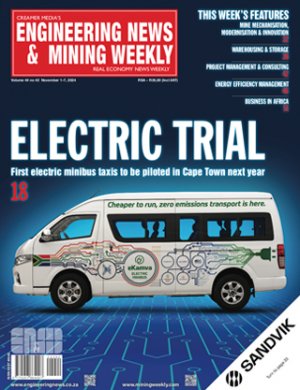Vibrating and original-equipment manufacturer (OEM) and supplier Kwatani has successfully custom-engineered and manufactured about 1 000 of its robust vibrating screens and feeders in the iron-ore sector in South Africa to date, while more than 15 000 units have been shipped into 35 countries globally.
The company has been supplying the heavy minerals sector for over 40 years and is considered the largest supplier of this type of equipment to the sector, says Kwatani CEO Kim Schoepflin.
The company can ship a screen or feeder every day, and is primarily equipped to engineer for tonnage. Schoepflin believes that Kwatani’s success lies in its ability to engineer a customised, robust vibrating equipment solution at a proven lowest cost of ownership.
“We achieve this by establishing a strong working relationship with the mine. Collaborating with clients is an efficient way of understanding their requirements and the value that such an improvement or change can bring to their overall process.”
However, extensive modifications to plant infrastructure can be very costly, so this strong working partnership enables the client to reap the financial benefit of a cost-effective solution.
“It is often not necessary to modify everything when replacing ageing or nonfunctioning vibratory equipment. When Kwatani retrofits a mine’s vibrating screens, we always look at the bigger picture and develop a design that will be suitable for the mine’s specific needs. This occasionally means we can retain aspects of the existing equipment and replace only certain components.”
The company’s tailor-made approach requires working within the various restrictions that each work site places on the equipment it houses while meeting performance requirements in terms of tonnage throughput and efficiency.
Some restrictions that are inherent to the plant could include the dimensions and weight of the vibrating screen being replaced, as well as the footprint of the screen relative to existing infrastructure.
Schoepflin mentions a specific installation at an iron-ore mine that required the company to engineer a low-profile screen and design specialised and certified equipment for lifting and placing the vibrating screen within the available headroom. “The mine, therefore, did not have to modify its plant building to allow access to the new vibrating screen, saving major costs and modifications,” she explains.
Another important consideration is the power consumption of the replacement unit, which must be matched with the capacity of the plant, while the dynamics of the vibrating equipment must be considered, owing to the potential impact that the vibrations could have on the existing plant and its infrastructure.
Once Kwatani moves into the design phase, the in-house metallurgists and design engineers work closely together when considering a screen design.
Screening equipment is a critical component of any iron-ore plant, as failure can cause unscheduled plant shutdown. “Robust designs are essential to prevent this while ensuring that the equipment is efficiently operated and maintained,” says Schoepflin.
Kwatani can not only design and manufacture solutions to suit the precise requirements of an iron-ore mine but also scientifically monitor and measure its performance, owing to the availability of a local branch in the area.
The company also focuses on efficiency improvements by installing exciter gearboxes that increase G-forces and, therefore, improve the mine’s recovery of ferrosilicon material and screening efficiency. Kwatani can also offer full turnkey solutions comprising design, manufacturing, installation, commissioning and maintenance.
It offers a complete screening and feeding product portfolio that meets all vibrating screening and feeding applications, including run-of-mine (RoM) scalping and grizzly screens, as well as an extensive range of robust drain and rinse, sizing, desliming, banana and dewatering screens in a single or double-decker configuration.
Heaviest Screen
The heaviest scalping screen the company has manufactured measures 3.7 m by 10 m and is driven by three of the largest exciter gearboxes in the Kwatani range, generating a centrifugal force of more than 2 MN. While it is not the largest screen the company has manufactured, it is the heaviest, weighing in at 54 t. The scalping screen is required to handle variable RoM ore conditions with a maximum continuous feed load of 7 000 t/h of iron-ore.
The screen deck was engineered to withstand the gruelling pounding of the feed tumbling from great heights onto the screen deck. These boulders can measure between 400 mm and 800 mm and the screen deck will lift and fall by 12 mm to 14 mm about 800 times a minute, requiring a robust screen that offered extended wear life.
Kwatani also designed special steel-reinforced rubber screen panels for this scalping screen, based on the resilience of the panel and its ability to absorb the centrifugal forces placed on the screen and especially on the screen deck, during operation. The rubber panels engineered by Kwatani are designed in harmony with the screen because it is such an integral part of the unit.
All the company’s screens are manufactured locally at Kwatani’s International Organisation for Standardisation (ISO) 9001:2015 accredited facility, in Kempton Park, Johannesburg, while all critical processes are manufactured in-house, including the gearboxes.
Kwatani’s exciter gearboxes are manufactured under the most stringent quality conditions and currently offers the highest centrifugal force available of any exciter gearbox manufacturer in South Africa. The housings for the gearboxes are cast by a local foundry especially for Kwatani and to its stringent specifications to guarantee robustness. “This makes us the largest supplier of exciter gearboxes in Africa,” Schoepflin declares.
These facilities enable the company to complete large-scale production projects in-house from conception to completion. “Our jobbing production system allows for a high level of customisation to meet our client-specific requirements, allowing for flexibility should an emergency arise,” she notes.
Mining Charter Compliancy
Kwatani is the first OEM of its class to comply with the new the Mining Charter requirement that a minimum 70% of goods procured must be manufactured in South Africa. For a product to be considered locally manufactured, it must use at least 60% local content during assembly or manufacturing.
“Kwatani is confident that it will obtain this local procurement certification, since it procures its raw materials locally and the majority of manufacturing processes are completed in-house,” Schoepflin explains.
Compliance to this requirement affords additional benefits, such as using local service providers, an understanding of the local requirements and controlling the quality of the product.
Kwatani is firmly committed to continue along this path.
Testing
Schoepflin says that a purpose-built test bench is created for each type of machine that the company produces, with each vibrating screen being fully tested before dispatch. The screen must run optimally for up to one hour before being passed and certified for use.
She adds that Kwatani is the only OEM to have a full-load exciter gearbox test bench, where all exciters are tested for 45 minutes on full load before being dispatched.
Kwatani also has its own laboratory at its Kempton Park premises, which houses a unique, fully adjustable test screen that is large enough to handle high quantities of test material. All screening parameters can be adjusted, such as the deck angle and the aperture of the screen panels. The stroke size or amplitude of the linear movement can also be adjusted by changing the weight position on the drives.
Once these optimum operating parameters have been determined, Kwatani can easily replicate those parameters and customise a commercial unit for a client.
Edited by: Zandile Mavuso
Creamer Media Senior Deputy Editor: Features
EMAIL THIS ARTICLE SAVE THIS ARTICLE
ARTICLE ENQUIRY
To subscribe email subscriptions@creamermedia.co.za or click here
To advertise email advertising@creamermedia.co.za or click here

















